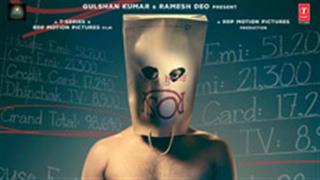Mixed signals are emanating from Hollywood studios about their future plans in India.
While 20th Century Fox has decided to wind up its operations in India, some other studios have declared the
country a "priority market". Buoyant after ticket collections of Rs.2.5 billion ($57.3 million) in 2004, Columbia
Tristar Films and Warner Bros are bullish about the Indian market and are rolling out expansion plans in the
subcontinent.
In dramatic contrast is the news about Fox's India office closing down because of a decline in the market for
dubbed English films.
Is Fox's decision to pack up its India operations a hasty decision or are Columbia and Warner Bros' plans for
expansion based on unfounded optimism? The answers seems somewhere in between.
The box-office report for Hollywood films seems relatively better than that of Bollywood's ware.
"Spiderman 2" grossed over Rs.350 million last year, the second highest English grosser in India after
"Titanic", which made over Rs.500 million, reports indicate.
In fact some Bollywood observers claim the English movie market is growing at 35 percent in India, which now
ranks 15th in theatrical collections made by Hollywood studios.
And studios like Columbia and Warner Bros have lined up a slew of big movies in 2005, like "Batman Begins",
"Star Wars Episode III", "King Kong", "Harry Potter and the Goblet of Fire", "Hitch", "Miss Congeniality 2", "Mr
and Mrs Smith", "The Chronicles of Narnia", "Memoirs of a Geisha", "War of the Worlds" (a Steven Spielberg
film) and "Charlie and the Chocolate Factory".
Simultaneous global releases are becoming the norm.
The total number of films made by Hollywood is peanuts compared to films made in India.
The domestic movie industry makes around 900 films a year, compared to America's 100, making it the world's
most prolific film-producing country.
But given the low rate of box-office hits - less than one-fourth of them break even - the industry's market share
in the $300 billion industry is a mere $3.5 billion.
Though Fox's marketing manager Paresh Manjrekar was quoted as saying that poor box-office returns for
Hollywood films had prompted the decision for a pullout, the facts tell a different story.
Foreign studios have had a reasonably good run at the Indian box-office. Fox's "Garfield" netted a neat profit
and Columbia Tristar made the highest profit in 2004 after setting up business in India.
Insiders said the reason behind Fox's decision to close its India operations could well be the way the country
conducts business and no way a certificate of Bollywood's triumph over Hollywood.
Former Fox India's managing director Aditya Shastri had at many forums brought up the need for urgent
change in policies and laws but to no avail.
He had gone on record as saying: "We have multiple problems in India, including unsettled tax issues for the
last eight years. So we are not seriously looking at production here."
The biggest adverse impact will be on Indian producers like Ram Gopal Varma who were counting on funds
from Fox.
Industry chambers like FICCI have been advocating the need for transparency in Bollywood for eons. FICCI's S.
Dasgupta said Bollywood needs a lot of catching up with regard to contracts, bonds and insurance procedures.
Hopefully, his voice will be heard with Fox's withdrawal from Indian market.
Restrictions imposed on foreign investors in the entertainment industry are probably more responsible for the
low Hollywood stakes in the Indian film market.
The world's biggest entertainment industry accounts for a mere five percent of the Indian market, whereas in
most other markets its share is up to 60-90 percent.
Domestically produced films capture up to 95 percent of the Indian market and there is no doubt that most
Indians prefer Indian movies.
Nonetheless, there is no dearth of connoisseurs of Hollywood products. Evidence for the demand is the fact
that the Motion Picture Association of America (MPAA) said Hollywood's leading studios lost more than $896
million in 2004 because of rampant movie piracy in the Asia-Pacific region.
Fuelling the demand for Hollywood films in India is the increasing demand for them by Indian TV channels.
Channels like STAR and SET Max have made the airing of Hollywood movies dubbed in Hindi a rule rather than
the exception.
Hollywood films, particularly those big on action and special effects, are typically dubbed by voiceover
professionals in Hindi to reach a wider section of the billion-plus population in a country crazy about movies.
To further increase their reach, Hollywood films are now being dubbed in Tamil and Telugu.
In fact, Sean Connery who uttered a few Hindi words in "The League Of Extraordinary Gentlemen" will be seen
speaking eloquent Hindi, Tamil and Telugu as the dubbed versions of his James Bond classics roll out across
India.
Ashok Amritraj has acquired the rights to dub the vintage Bond hits into the three Indian languages. He is also
considering dubbing many action-packed films including the early Clint Eastwood movies for exhibition in
India.
The entry of major Hollywood studios into production has to a great extent quelled the resentment of domestic
players. Instead of fighting off the trend, the high and mighty of Bollywood have joined the gang and recently
superstar Shah Rukh Khan lent his voice to the Hollywood movie "The Incredibles".
Some studios are mulling the possibility of Hollywood directors and producers making out-and-out Bollywood
potboilers starring our very own homespun stars.
Though Sony is going slow on the production front, it has significantly opened up its distribution line-up through
its Columbia Tristar Films arm.
Some Indian production houses have tied up with their Western counterparts for financing and distribution.
Clearly, the future of Hollywood films in India is not too bleak. Some Hollywood studios are cooking up right for
the Indian palate but changes in Bollywood's way of doing business are the need of the hour.
Hollywood studios have mixed record in India
Monday, January 31, 2005 15:26 IST




















